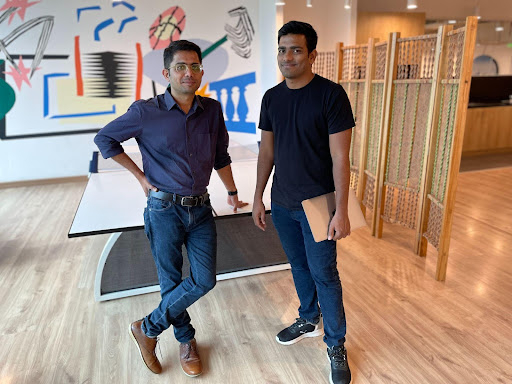
Amazon Web Services (AWS) launched the very first beta instance of their EC2 (Elastic Compute Cloud) back in 2006. It was the only platform of its kind to provide businesses with cloud computing. At the time, infrastructure as a service was a brand new concept and Amazon's executive team was innovative and ambitious in their development.
CloudWatch, added in 2009, enables users to monitor Amazon EC2 Instances and Elastic Load Balancers in real-time. This cloud monitoring system was revolutionary and improved the capabilities of the AWS platform tremendously. However, nowadays there are hundreds of paid and open source products that can monitor anything with near perfection. That being said, the industry of open-source observability tools is quite limited, and those that are available come with a hefty price tag.
Metricsbird Swoops in as a Brilliant Solution
Cofounder of Metricsbird, Prasanna Venkatesh, explains "Our product is targeted towards developers and devops teams at early to growth-stage startups with a super-attractive pricing plan and a plug-and-play monitoring infrastructure."
Metricsbird is reimagining how log management and analytics should work in any organization. They aim to solve three major challenges for AWS developers - working with multiple AWS accounts, working with multi-region distributed applications, and working in multi-cloud production environments. It promises to be the fastest experience for developers to log and analyze CloudWatch data.
Previously, AWS developers reported a bad console user experience, confusing documentation of more than 200 services, and Stack Overflow with multiple opinions. It is estimated that developers spend at least 10% of their time finding and fixing issues in the code. Even though it is impossible to write code without any bugs, Metricsbird aims to drastically minimize the time it takes to get to the data needed to fix the issues.
Who Is Making It Happen?
The founding team - Ashok Kumar Gujju and Prasanna Venkatesh both come from humble beginnings in India. Neither grew up with many opportunities, but they both dreamed of a bigger and better life and were committed to taking action to make it happen.
Initially, Prasanna found work with an advertising agency in the metropolitan city of Chennai. At the same time, he continued to enhance his skills by learning HTML and CSS. He built websites and e-commerce stores in his free time and was eventually able to land a contractor position with Citibank's Netbanking project. This helped to open doors to product management work, and he spent the next decade working with a variety of tech startups – taking some to generate millions of dollars in revenue.
Ashok took a different route, completing his Bachelor's degree in Computer Science and Engineering. After his studies, he landed an internship with Idea Bubbles. It was such a new company that he was given much more responsibility than expected, taking on everything from recruiting to product development. He learned a lot very quickly and was thankful for the jumpstart in his career. He left Idea Bubbles to join another startup, Pitstop (Chatpay). Although he was onboarded as their first android developer, he was soon promoted to lead their android team. To improve performance and UX, he rewrote all of the company's existing apps from scratch – a testament to his expertise. Finally, in 2018 he moved on to MountBlue Technologies as their Software Engineering Mentor. During his time with the company, he successfully trained over 200 engineers.
A Great Idea Comes to Fruition
Both Ashok and Prasanna had quietly dreamed of starting their own business for many years. One day, Prasanna realized that Avlesh Singh a widely respected Indian startup founder – had been putting out a call on Twitter to his community, year after year, to build compelling alternatives from India for software products like Datadog and Outreach. Avlesh noted that his company, Web Engage, spends $200K annually on software subscriptions, with Datadog taking a huge portion of that pie. He was eager for someone in his own community to take a bite out of this largely untapped market.
Prasanna decided to jump on the idea and partnered up with Kiran Karidi and Ashok to develop a prototype. When they successfully brought on UC Berkeley as their first investor, the team knew that they had come up with a winner.
The idea behind the Metricsbird model is the software-as-a-service platform that charges customers a fee based on the number of licenses they procure, at $10/month per license. Customers who choose to pay for yearly licensing receive two months free. They also plan to offer a free-forever personal plan, where developers can signup and use the product free of charge if they are using it for themselves, only incurring costs if their team uses it as well.
By working with developers at companies like eBay and Coinbase the team at Metricsbird has been able to steer the product in the right direction taking in feedback from those most likely to use it. There's no doubt Metricbird will keep on making big waves in the market.








